Vaginal dryness, or atrophic vaginitis, is an uncomfortable condition that can be caused by many different factors. Fortunately, there are natural remedies for vaginal dryness available to help alleviate the symptoms associated with this condition.
From herbal supplements and dietary changes to lubricants and moisturizers, exercise, stress management techniques, home remedies, and alternative therapies - these methods offer a safe way of treating the discomfort associated with this condition without relying on medical intervention or medications.
Today, we will explore some of these natural remedies for vaginal dryness in more detail so you can make informed decisions about how best to manage your own personal situation.
What Causes Vaginal Dryness?
In order to treat symptoms of this condition, we must first understand the possible root causes.
The most common causes of vaginal dryness include:
• Menopause: Estrogen levels can decrease as women age, leading to reduced lubrication and an increase in dryness.
• Medications: Certain medications, such as antihistamines, can reduce the amount of moisture in the vagina and lead to dryness.
• Pregnancy and Breastfeeding: Pregnant and Breastfeeding mothers often suffer from atrophic vaginitis due to decreased estrogen levels.
• Douching: Washing the vagina with chemical douches or soaps disrupts its delicate pH balance and washes away natural lubricants that keep it moist.
• Allergies/Irritants: Fragrances, chemicals, soaps, and dyes found in certain hygiene products can cause irritated skin and lead to less moisture.
Is Vaginal Atrophy and Vaginal Dryness The Same?
Although often related, vaginal atrophy and vaginal dryness are not the same. Vaginal atrophy is a condition that occurs due to decreased levels of estrogen in the body, which can cause thinning and dryness of the vaginal walls. Vaginal dryness, on the other hand, can result from decreased natural lubricant production or overuse of personal hygiene products. Both conditions can cause discomfort during sexual intercourse.
Dryness is certainly a symptom of vaginal atrophy. However, vaginal atrophy is a condition caused by the thinning and drying of vaginal tissue that causes itching, burning, and pain during sex and can be quite a bit worse than typical vaginal dryness.
Both conditions are caused by a decrease in estrogen levels.
Natural Remedies for Vaginal Dryness
There are a variety of natural remedies that can be beneficial for treating vaginal dryness. A number of herbal supplements, such as Ashoka and Aloe Vera, can be taken orally or applied topically to lubricate the vagina and improve hormone balance.
Yoga and pranayama (breathing exercises) have also been shown to reduce stress and promote healthy levels of estrogen hormones. Other lifestyle changes, such as drinking plenty of water, getting enough sleep, and managing stress with meditation or relaxation techniques, may all help improve vaginal lubrication naturally.
Herbal Supplements
*** Before diving in, it is extremely important to consult a healthcare professional before taking any herbal supplements, as they may interact with other medications or have side effects. Do not take herbal supplements during pregnancy or while breastfeeding unless they have been cleared by a healthcare professional.
Having said that, herbal supplements are a popular natural remedy for vaginal dryness as they can be very effective at treating the root cause. Common herbs used to treat this condition include black cohosh, dong quai, ginseng, and several others.
Black Cohosh
Black cohosh is an herb derived from the buttercup family that has been used for centuries by Native Americans to treat various ailments, including menstrual cramps and menopausal symptoms such as hot flashes and night sweats. It is often used to treat various ailments, including vaginal dryness.
Black cohosh works by helping to balance hormone levels, which can relieve symptoms such as itching and discomfort. Additionally, black cohosh has also been found to increase circulation in the genital area, increase lubrication, and reduce inflammation, all of which can help address vaginal dryness.
To use black cohosh for vaginal dryness, it is recommended to take 300 milligrams once a day with food.
THIS is my favorite brand for many herbal supplements, including black cohosh.
Dong Quai
Dong quai is often referred to as the "female ginseng" due to its effectiveness in treating many health issues that are prevalent among women. Also known as Chinese angelica root, dong quai an herbal root used in traditional Chinese medicine for its medicinal properties. It is often used to treat gynecological issues such as irregular periods and menstrual cramps, as well as vaginal dryness.
Dong quai is believed to balance hormones and increase circulation in the pelvic area for improved symptoms of vaginal dryness. It can be taken in pill form or brewed into tea for maximum benefits.
In Traditional Chinese Medicine, it is used for almost all female gynecological problems and is especially nourishing for dry and thin vaginal tissue, possibly due to its ability to bind to estrogen receptor sites.
To use dong quai, it is recommended to take 400-600 milligrams a day with meals.
If taking dong quai in pill form, make sure to look for high-quality supplements that contain pure angelica root extract. I like this one.
*** Those who are pregnant should avoid taking dong quai due to the potential risk of miscarriage.
Ginseng
Ginseng (American Ginseng) is an herb that has been used for centuries to treat various ailments, including gynecological issues such as PMS and menopausal symptoms like hot flashes and night sweats. It can also be helpful in treating atrophic vaginitis due to its ability to balance hormone levels which helps regulate the production of natural lubricants in the body.
Ginseng is an adaptogenic herb that helps support overall health by helping the body cope with stressors more effectively while boosting energy levels at the same time, making it beneficial for both physical and mental well-being.
In terms of treating vaginal dryness specifically, ginseng works by increasing circulation throughout the body, including blood flow down below which helps promote healthy lubrication naturally.
Herbal supplements can be an effective way to treat vaginal dryness, but it is important to speak with your doctor before taking any. Dietary changes are another natural option that can help relieve symptoms of atrophic vaginitis.
To use ginseng for its medicinal benefits, it is recommended to take 500 milligrams twice daily with meals as part of a healthy diet.
Make sure to look for high-quality supplements that contain pure ginseng extract, like this one.
*** Those who are pregnant should avoid taking ginseng due to the potential risk of miscarriage.
Maca Root
Maca root is an ancient herbal remedy often used to help relieve the symptoms of vaginal dryness as it helps increase the production of estrogen in the body. It is a type of vegetable native to the mountains of Peru and belongs to the radish family and has grown in popularity in recent decades due to its many health benefits.
Maca root is known for its ability to increase energy, balance hormones, and reduce symptoms associated with menopause, such as hot flashes and vaginal dryness. Additionally, maca root can also help increase fertility and libido and improve skin tone. It can be taken in capsule form or brewed into tea.
To use it, take 500 milligrams of maca root twice daily with meals to help boost estrogen levels and promote lubrication.
I find it easy to add maca root powder to my morning smoothie.
Check out my post The Benefits of Maca Powder to learn more.
Dietary Changes for Vaginal Dryness Relief
Dietary changes can be a helpful way to reduce the symptoms of vaginal dryness.
Food and Lifestyle Choices
Making certain lifestyle choices and eating the right foods can help improve vaginal health. Estrogen plays a major role in feminine health, so it's important to maintain healthy levels of estrogen in order to reduce inflammation and dryness.
During menopause, times of prolonged stress, pregnancy, and breastfeeding, estrogen levels naturally decrease, which can lead to feminine dryness. Eating foods that are rich in phytoestrogens can help with this by increasing the body's natural production of estrogen.
One universal truth seems to be that alkaline diets are preferable to acidic diets. This makes sense when you compare alkaline foods (fruits and vegetables) to acidic foods (meat, dairy, grains, processed items, etc.).
A more alkaline-focused diet will help improve gastrointestinal health as well as balance vaginal pH levels. Alkaline-rich foods are also more hydrating, which will, in turn, improve dryness issues throughout the body.
Foods that contain antioxidants can also help improve blood flow to the vagina, which can help with lubrication and reduce discomfort. Foods such as leafy greens, nuts, seeds, and whole grains are all great sources of antioxidants.
Making sure you're getting enough water is also important for maintaining good feminine health, as it helps keep your body hydrated and helps with lubrication.
Using products specifically designed to help with atrophic vaginitis can also be beneficial in improving overall feminine health and reducing irritation.
Omega-3 Fatty Acids
Omega-3 fatty acids are essential fats our bodies need but cannot produce on their own. Providing your body with the necessary building blocks for restoring hormonal balance is key to reversing vaginal dryness. They have anti-inflammatory and moisturizing properties, making them ideal for reducing irritation and soreness associated with vaginal dryness.
Omega-3s may also improve the body's production of hormones, which can further reduce dryness in the vagina. It is recommended to obtain omega-3s through a balanced diet or supplementation.
Eating these foods regularly can help increase moisture levels in the vagina which can alleviate symptoms of atrophic vaginitis.
Omega-3-rich foods include:
- Pasture-raised butter
- Ghee
- Coconut oil
- Salmon
- Sardines
- Walnuts
- Flaxseeds
- Chia seeds
- Hemp seeds
Phytoestrogens
Phytoestrogens are plant compounds found in certain foods that mimic estrogen in the body when ingested or applied to the vaginal area. They have been shown to help with hormone balance, which can improve lubrication levels in women experiencing dryness due to hormonal imbalances.
Some research suggests that taking phytoestrogens can help reduce symptoms of menopause, such as hot flashes and vaginal dryness. Phytoestrogens can also help improve skin health and reduce inflammation.
Foods high in phytoestrogen content include:
- Soy products like tofu, tempeh, and miso
- Legumes such as chickpeas and mung beans
- Nuts and seeds, especially sesame seeds and pumpkin seeds (check out my post on seed cycling here)
- Fruits, including apples, pears, plums, grapes, and berries
- Grains such as oats, wheat, barley, rice, wheat germ, rice bran
- Garlic
- Onion
- Herbs like red clover and alfalfa
- Vegetables like broccoli and cauliflower, and other cruciferous veggies
- Spices like turmeric
- Teas like green tea
- Oils like olive oil and avocado oil
- Dark chocolate containing at least 70% cocoa solids
- Wine made from grapes grown organically without synthetic fertilizers or pesticides
One easy way to add more phytoestrogens into your diet is adding 40 grams of flaxseed to your daily smoothie.
Vitamins and Minerals
Vitamins and minerals play a vital role in hormonal balance. Certain vitamins, such as Vitamin A, D, E and K can act as building blocks for hormones, while minerals like magnesium and zinc help to regulate their production and release. Vitamin B6 helps the body convert proteins into hormones, and Vitamin C plays a role in modulating hormone levels.
By ensuring proper intake of essential vitamins and minerals through both diet and supplementation, you can help support optimal hormonal balance.
Make sure you are getting enough of the following vitamins and minerals:
All of these nutrients play an important role in maintaining healthy hormones and may also be beneficial for treating vaginal dryness.
Vitamin E, in particular, is known for regulating estrogen production. Take 800 - 1200 IU daily. Do not use this high dose if you are on blood thinners.
Adding these vitamins and minerals into your diet through whole food sources is key for improving overall health, especially if you are suffering from atrophic vaginitis due to hormonal imbalance.
Food sources rich in these vitamins and minerals include leafy greens such as spinach and kale; avocados; nuts and seeds like pumpkin seeds; fish like salmon; beans or legumes such as chickpeas; eggs etc.
Lubricants and Moisturizers
Although not a cure, lubricants and moisturizers are an effective way to treat dryness and discomfort at home and offer relief.
Natural oils such as coconut oil, olive oil, and avocado oil can be applied directly to the area to provide relief from discomfort and itching associated with dryness and are one of the best natural treatments while you work on the root cause.
*** However, do not use these if you use condoms for pregnancy prevention, as they will break down the condom and render it useless.
It is also important to use only natural products that are free from fragrances or other irritants that could cause further irritation or allergic reactions.
Coconut Oil
Coconut oil has anti-inflammatory properties, which make it a great choice for the daily management of feminine dryness. It also helps reduce inflammation in the vagina, which can lead to increased moisture levels and improved comfort levels.
To use coconut oil as a lubricant, simply apply a small amount of the oil directly onto your fingertips before inserting it into the vagina. The warmth of your body will help melt the coconut oil so it can easily spread throughout the area providing much-needed moisture and relief.
Check out my post on my Top 5 Ways to use Coconut Oil to learn more.
Aloe Vera Gel
Aloe vera gel is a great water-based lubricant option due to its soothing properties and ability to restore moisture balance in sensitive areas like the vagina. To use aloe vera gel as a lubricant, simply apply some of the gel directly onto your clean fingertips before inserting it into the vagina.
The cool sensation provided by aloe vera will help relieve vaginal burning sensations, ease dryness, and help reduce pain during sex caused by friction during sex while providing long-lasting hydration that lasts up to 8 hours after application.
This simple yet effective vaginal moisturizer has also been a favorite remedy among post-menopausal women for dealing with atrophic vaginitis and a loss of libido because of pain and discomfort.
Aloe Cadabra is a great brand to try.
Other Natural Oils
Natural oils such as olive or avocado oil are excellent choices when looking for ways to naturally treat feminine dryness since they contain essential fatty acids which act as natural emollients helping skin retain its moisture balance over time without causing any irritation or allergies as many synthetic products do.
Simply massage some of these oils around your vulva before intercourse for added lubrication during sex (DO NOT use with condoms). This will help reduce pain and discomfort by improving vaginal moisture levels.
Overall, using natural oils such as coconut, aloe vera gel, or even olive/avocado oils is an easy way to treat vaginal dryness at home without having to rely on harsh chemicals found in most store-bought lubricants.
With regular usage, you should start noticing improvements within just a few days, making this one of the best remedies out there if you're looking for something quick yet effective.
Exercise
One of the most overlooked treatment options for feminine dryness is exercise.
Exercise is an important part of maintaining overall health and wellness, but it can also be beneficial for reducing symptoms of vaginal dryness. Regular exercise helps improve circulation in the pelvic area, which can help reduce discomfort associated with this condition.
Pelvic Floor Exercises
Pelvic floor exercises such as Kegels are especially beneficial for strengthening the muscles around the vagina, which can improve lubrication levels naturally over time.
To do a Kegel, start by sitting or lying down comfortably on your back with your knees bent and feet flat on the floor. Then, tighten your pelvic floor muscles (the same ones you use to stop urinating) and hold them tight for 5 seconds before releasing them slowly. Repeat this ten times per session and aim to do 3-4 sessions each day for best results.
Yoga Poses for Vaginal Health
Certain yoga poses have been shown to increase blood flow to the pelvic region, which may also help reduce symptoms of atrophic vaginitis. Some recommended poses include Child’s Pose, Cat/Cow Pose, Bridge Pose, Reclined Bound Angle Pose (Supta Baddha Konasana), Wide-Legged Forward Bend (Prasarita Padottanasana), Half Lord of The Fishes pose (Ardha Matsyendrasana).
Make sure to practice these poses under proper guidance from a certified instructor if possible since incorrect form could lead to injury or further aggravate existing conditions like vaginal dryness instead of improving it.
Exercising your pelvic floor and engaging in yoga poses can help improve feminine health, reduce dryness, and relieve stress. Stress management techniques such as meditation and breathing exercises can also be beneficial to overall vaginal health.
Stress Management Techniques
Stress management is an important part of maintaining overall health and well-being. When we experience stress, our bodies release hormones like adrenaline and cortisol that can cause us to become anxious, irritable, and overwhelmed.
To manage stress, it’s important to practice relaxation techniques like deep breathing or meditation, exercise regularly, get adequate sleep, and limit caffeine and alcohol intake.
Developing healthy coping mechanisms such as journaling or talking to a friend can also help you better cope with stressful situations. Practicing good stress management can lead to more balanced emotions, improved concentration levels, and decreased risk of mental health issues.
For more ways to reduce stress naturally, check out my post on the topic here.
Meditation and Mindfulness Practices
Meditation and mindfulness practices are a great way to reduce stress levels which can contribute to symptoms of vaginal dryness. Taking time out of your day to focus on the present moment, relax your body, and clear your mind can help you become more aware of how stress affects you. Examples of meditation techniques include guided imagery, progressive muscle relaxation, deep breathing exercises, yoga, or tai chi.
Breathing Exercises
Breathing exercises are another effective way to relax the body and mind, which may also help alleviate symptoms associated with this condition over time. Deep abdominal breathing is one technique that involves taking slow breaths in through the nose while focusing on expanding the belly rather than raising the shoulders. This type of breathing helps activate the parasympathetic nervous system, calming down our bodies' fight-or-flight response when we experience anxiety or stress. Other types of breathing exercises, such as alternate nostril breathing (Nadi Shodhana), can be used for calming purposes as well.
Managing stress levels is essential for relieving symptoms of feminine dryness. Incorporating these techniques into your daily routine can help you to achieve greater relief from discomfort and other related issues. Now let's learn about natural options that may be beneficial in treating vaginal dryness.
Home Remedies for Vaginal Dryness
Vaginal dryness is a common issue that can cause discomfort and even pain during sex. Fortunately, there are several remedies you can try to help alleviate its symptoms.
Sitz Baths with Epsom Salt or Dead Sea Salt
Taking warm baths with Epsom salt can help soothe inflammation and reduce inflammation caused by vaginal dryness. The magnesium in the salts helps relax muscles, which may provide relief.
Additionally, using an herbal-infused sitz bath, like those used for postpartum healing, can be especially soothing since they contain herbs and essential oils.
This brand is my favorite.
Cold Witch Hazel Compresses
Yes, witch hazel, although astringent in nature, can be very soothing for dry, irritated skin. Applying it as a cold compress to the affected area can be an effective way to temporarily relieve itching and burning sensations associated with atrophic vaginitis.
The easiest method is to use presoaked pads like these. Use them as directed for best results.
You can also use a witch hazel foam. Just store it in the fridge if you prefer a more cooling effect. This can be used along with a thin panty liner 3x a day.
THIS is a really good witch hazel foam I used for postpartum healing.
These simple remedies can provide a safe and natural way to reduce discomfort and help heal and soothe irritated skin.
Alternative Therapies for Vaginal Dryness
Alternative therapies can be an effective way to treat this condition without relying on medications or over-the-counter products.
Acupuncture
Acupuncture is a traditional Chinese medicine practice that involves inserting very thin needles into specific points of the body to stimulate energy flow and promote healing. It has been used for centuries to treat various maladies, including vaginal dryness.
Research suggests that acupuncture may help improve symptoms of vaginal dryness by increasing blood flow to the pelvic organs, promoting hormone balance in the body, and reducing stress-related symptoms like anxiety or fatigue. It can also restore natural lubrication and improve overall sexual function and satisfaction.
Ayurvedic Medicine
Ayurvedic medicine is an ancient Indian form of holistic health treatment that has been used to treat a variety of issues and is holistic approach focuses on balancing the mind, body, and spirit through diet, lifestyle changes, herbal remedies, massage therapy, yoga poses, meditation practices, and more.
Ayurveda uses balance and harmony in the body to create health and wellness. When it comes to treating vaginal dryness, ayurvedic medicine relies on diet modifications, herbal remedies, and lifestyle changes.
Herbal supplements like Ashoka can be taken orally to improve hormone balance, while other herbs, such as Aloe Vera, can be applied topically to lubricate the vagina.
Ashwagandha root powder is often recommended in Ayurvedic treatments as it can help reduce stress levels which can contribute to hormonal imbalances leading to vaginal dryness.
Other modalities, such as yoga or pranayama (breathing exercises), may also help reduce stress and encourage natural lubrication. Ayurvedic treatment is tailored for each individual, so consulting with a qualified practitioner is important for getting the best results.
You can get high-quality ashwagandha root HERE.
Homeopathy
Homeopathy is also an option when it comes to treating vaginal dryness naturally.
Homeopathic remedies are made from natural substances such as plants and minerals that have been diluted down so they don’t cause any side effects but still provide relief from symptoms like itching or burning sensations associated with this condition.
Some common homeopathic remedies include Calcarea Carbonica (oyster shell), which helps with inflammation; Sepia (cuttlefish ink), which helps restore lubrication; Pulsatilla (windflower), which relieves irritation due to lack of moisture; and Lachesis Mutus (bushmaster snake venom), which alleviates pain during sex due to lack of lubrication in the vaginal walls.
These alternative therapies offer safe ways for women suffering from this condition who want relief without resorting to prescription drugs or over-the-counter products containing harsh chemicals or artificial ingredients.
Hormone Replacement Therapy for Vaginal Health
Hormone Replacement Therapy (HRT) is a great way to improve vaginal health. It works by supplementing the hormones that can become depleted over time due to aging, menopause, pregnancy, or even during periods of increased stress.
HRT helps bring balance back to the body and restore natural vaginal tissue health, which can improve sexual functioning and reduce painful sensations during sex.
Estrogen is the hormone responsible for sexual and reproductive development in women. It supports the maintenance of female characteristics, such as regulating the menstrual cycle and controlling breast development. It also helps maintain bone health, regulates cholesterol levels, and boosts moods.
Estrogen is the main hormone used in HRT for vaginal health, and it can be administered through a cream that is applied topically on thin-skinned areas of the body.
Estrogen cream helps to prevent vaginal dryness and irritation, as well as providing lubrication for the vagina. This helps to reduce discomfort and pain during sex due to lack of lubrication and is considered one of the best treatment options available.
It also helps to prevent vaginal dryness and irritation, which can lead to further issues such as infection or inflammation of the vaginal tissues.
HRT can also help with other conditions, such as urinary incontinence, which can be caused by low levels of estrogen in the body. By using estrogen cream, you are able to increase your body's natural production of estrogen, which helps to improve your overall vaginal health.
THIS is a good natural option for estrogen cream.
If you want to get your hormones tested to see what your levels are for women's health and thyroid, check out my post HERE.
Frequently Asked Questions
Since I get asked so many questions per day, I will start adding an FAQ section to my blog posts so that everyone may benefit from the answers.
What is vaginal atrophy?
Vaginal atrophy is a common side effect of menopause caused by the reduction in estrogen levels. Symptoms of atrophy can include dryness and thinning of the vaginal walls, difficulty lubricating during sexual intercourse, burning sensations, and discomfort.
In some cases, it may lead to an increased risk of infection due to irritation or weakened tissues.
What are some remedies for vaginal atrophy?
Women experiencing vaginal atrophy can try simple remedies such as avoiding soap near the vagina, using lubricants during sex, and increasing water and fiber intake.
Additionally, natural treatments like supplements containing flaxseed oil or evening primrose oil may help reduce inflammation and irritation. Hormonal therapy is also an effective treatment for vaginal atrophy.
How is vaginal atrophy in postmenopausal women treated?
Treatment for vaginal atrophy in postmenopausal women typically involves hormone therapy, either in the form of a topical cream or oral medication.
Lifestyle modifications such as avoiding irritants near the vagina and using lubricants during sexual intercourse can also provide some relief.
What helps with dryness down there?
There are a variety of treatments that can help with dryness in the vaginal area, including:
• Drinking plenty of water to stay hydrated
• Eating a diet high in healthy fats and low in sugar
• Applying non-irritating lubricants, such as coconut oil or natural aloe vera gel
• Taking herbal supplements such as dong quai or black cohosh
• Using warm compresses to increase circulation and relieve discomfort
• Avoiding irritants such as perfumes, douches, and scented soaps
Why am I dry down there all of a sudden?
Sudden vaginal dryness can be caused by a number of factors, including hormonal changes, stress, and certain medications. Menopause and perimenopause are also common causes. It is important to identify the underlying cause in order to determine how best to address the issue.
Talk to your doctor if symptoms persist so that they can assess the situation and provide proper treatment.
How can I increase my natural lubrication?
What foods increase female lubrication?
Certain foods can help increase female lubrication. Eating healthy fats, such as avocados, nuts, and olive oil, can help promote natural lubrication. Also, eating vegetables high in estrogen-like compounds, such as kale, Brussels sprouts, and other cruciferous vegetables, may help increase moisture.
Drinking plenty of water is also important for keeping the body hydrated and promoting healthy lubrication levels.
Why am I so dry down there?
There are a few potential causes for feeling dry down there. One possible reason could be dehydration, so it's important to drink plenty of water and stay hydrated throughout the day.
Some medications can interfere with lubrication levels, so check with your doctor if you think this might be the case.
Hormonal imbalances or low libido can also lead to feeling dry down there, so exploring treatments or sexual activities to increase arousal may help improve lubrication levels.
How long does it take for estrogen cream to absorb?
Typically, it can take about 2-4 hours for estrogen cream to be fully absorbed into the body. However, this time may vary depending on the amount, type, and brand of cream used. It is important to follow the instructions supplied with the cream to ensure that it is being used properly and that it is being absorbed correctly.
Don't forget to consult your doctor before using any type of estrogen cream or hormone therapy since any form of hormone replacement therapy, even natural options, can disrupt hormone balance if not used properly.
What is the best lubricant to use during menopause?
During menopause, it is important to find a lubricant that is suitable for your body and sensitive skin. Some women may benefit from using a water-based or silicone-based lubricant, as these are gentler on the skin.
For extra sensitivity, look for lubricants that are free of parabens and fragrances, as these can irritate the skin.
Do you need a prescription for estrogen cream?
You can get natural forms of estrogen cream at your local health food store or through a prescription for your healthcare provider.
Be sure that you are working with a professional when using hormone replacement therapy to make sure you are using the right methods and dose for your unique needs.
What causes lack of natural lubrication?
How do you get rid of dryness down there?
Dryness down there can be caused by a variety of factors, including hormonal imbalance, a decrease in natural lubrication, psychological stress, and more.
To get rid of dryness, you may need to address the underlying cause by consulting with a doctor or healthcare professional.
Be sure to up hydration, add more healthy foods to your diet, get plenty of sleep and exercise, reduce stress, and use products designed to alleviate and treat vaginal dryness.
Does Vaginal dryness go away?
Vaginal dryness can go away with the help of proper treatment. Treatments may involve hormone replacement therapy, lubricants and moisturizers, medications, lifestyle changes, and more.
Consulting a doctor or healthcare professional may be beneficial for finding an effective solution that works for you.
Does the dryness of menopause go away?
The dryness associated with menopause can often go away with the help of hormones and other treatments.
Hormone replacement therapy, lubricants and moisturizers, medications, lifestyle changes, and more are all possible treatments that may be prescribed by a doctor or healthcare professional.
It's important to consult a professional when it comes to finding an effective solution for relieving your symptoms.
How can I naturally increase lubrication after menopause?
There are several natural ways to increase lubrication after menopause. Some methods include using over-the-counter vaginal moisturizers or lubricants, drinking plenty of water to stay hydrated, taking dietary supplements such as omega-3 fatty acids and probiotics, and exercising regularly
What helps with female lubrication?
There are several treatments and methods that may help to increase female lubrication.
Some of these include taking over-the-counter lubricants or vaginal moisturizers, drinking plenty of water to stay hydrated, taking dietary supplements such as omega-3 fatty acids and probiotics, exercising regularly, and using a personal lubricant before intercourse.
Who should not use estrogen cream?
Estrogen cream is generally not recommended for use by pregnant and nursing women, people with a history of breast cancer or other hormone-sensitive conditions, and those who have had an abnormal Pap smear or cervical dysplasia.
Is estrogen topical cream safe?
Estrogen topical cream is considered safe for use when used as directed. However, it is important to note that estrogen is a hormone and can have side effects if used in large doses or not closely monitored by a doctor. Always work with a healthcare professional when using HRT.
How long can you use estrogen cream for?
The length of time you can use estrogen cream depends on the individual and their health condition.
Generally speaking, it is recommended that estrogen cream be used for no longer than 3 to 6 months unless otherwise directed by a doctor.
In certain situations, your doctor may advise you to use estrogen cream for an extended period of time in order to reach the desired therapeutic outcome.
What happens when you use estrogen cream?
Estrogen cream can help to reduce symptoms of menopause, improve skin hydration and elasticity, delay signs of aging, and reduce the risk of osteoporosis.
It is important to note that estrogen cream can also have potential side effects such as changes in the menstrual cycle, water retention, nausea, headaches, breast tenderness, abdominal bloating, and mood swings.
Therefore it is essential to speak with your doctor before beginning any form of estrogen therapy and follow their instructions closely.
What helps natural female lubrication?
Natural female lubrication can be encouraged with a variety of methods. These include staying hydrated, engaging in regular exercise, reducing stress, using nourishing moisturizers and oils, avoiding overly tight clothing, and using natural lubricants such as aloe vera gel or coconut oil.
Additionally, certain vitamins (like B6 and E) and dietary supplements may help promote natural female lubrication.
What is a natural remedy for dry down there?
For natural relief from dryness "down there," a variety of products and methods can be used.
Coconut oil, aloe vera gel, or other natural lubricants can help to hydrate the area and ease discomfort. Vitamins like Omega-3 fatty acids and Vitamin E can also promote lubrication.
Avoiding harsh soaps, reducing stress, staying hydrated, and wearing breathable cotton underwear may help prevent or reduce dryness.
How can I stop dryness in my private part?
Dryness in the private area can be alleviated with a few different methods. Staying hydrated, avoiding harsh soaps, reducing stress, and wearing breathable clothing are all important steps to take.
Natural lubricants like aloe vera gel or coconut oil may also help to provide relief by hydrating the area. Additionally, vitamins such as Omega-3 fatty acids and Vitamin E can help promote natural lubrication.
Where should you apply hormone cream?
The best areas to apply hormone cream are the inner thighs, inner elbows, and wrists, where the skin is thinnest on the body. You can rotate the application of these areas every few days.
How long does it take for estrogen creams to work?
Estrogen creams can take anywhere from several weeks to a few months before you start noticing any results.
Factors like the type of estrogen cream used as well as dosage and frequency of application, can influence how quickly you see results. As with any medication, it's important to consult your doctor to determine the best treatment options for your specific needs.
How do you use estrogen body cream?
Estrogen body cream should be applied directly to the skin, usually twice a day. Before applying it, clean and dry the area where you’ll be applying the cream.
Make sure to follow your doctor’s instructions regarding how much to apply and when.
When using estrogen body cream, avoid contact with your eyes and other sensitive areas such as the mouth and nose.
Take extra care when using the cream around children or pets.
Is there a natural alternative to estrogen cream?
Yes, there are many natural alternatives to using an estrogen cream. Some examples include soy-based products, herbs such as black cohosh and red clover, dietary supplements like vitamin E and Vitamin B6, and lifestyle changes such as eating a balanced diet and exercising regularly.
However, it's still important to talk with your doctor before trying any of these natural methods to make sure they are right for you.
What can I use instead of estrogen cream?
Homeopathy and acupuncture are great alternatives to look into. There are also several topical options available that contain phytoestrogens (plant-based compounds that mimic estrogen) which may provide an effective treatment plan for those looking for a replacement for estrogen cream.
What is the best over-the-counter estrogen?
Over-the-counter estrogens vary in effectiveness, so it is important to speak with your healthcare provider for a personalized recommendation.
Some products available over-the-counter that contain phytoestrogens include creams containing wild yam and herbs such as red clover, fenugreek, and dong quai.
These plant-based compounds provide naturally occurring estrogen that may help to balance hormones without the need for prescription medication.
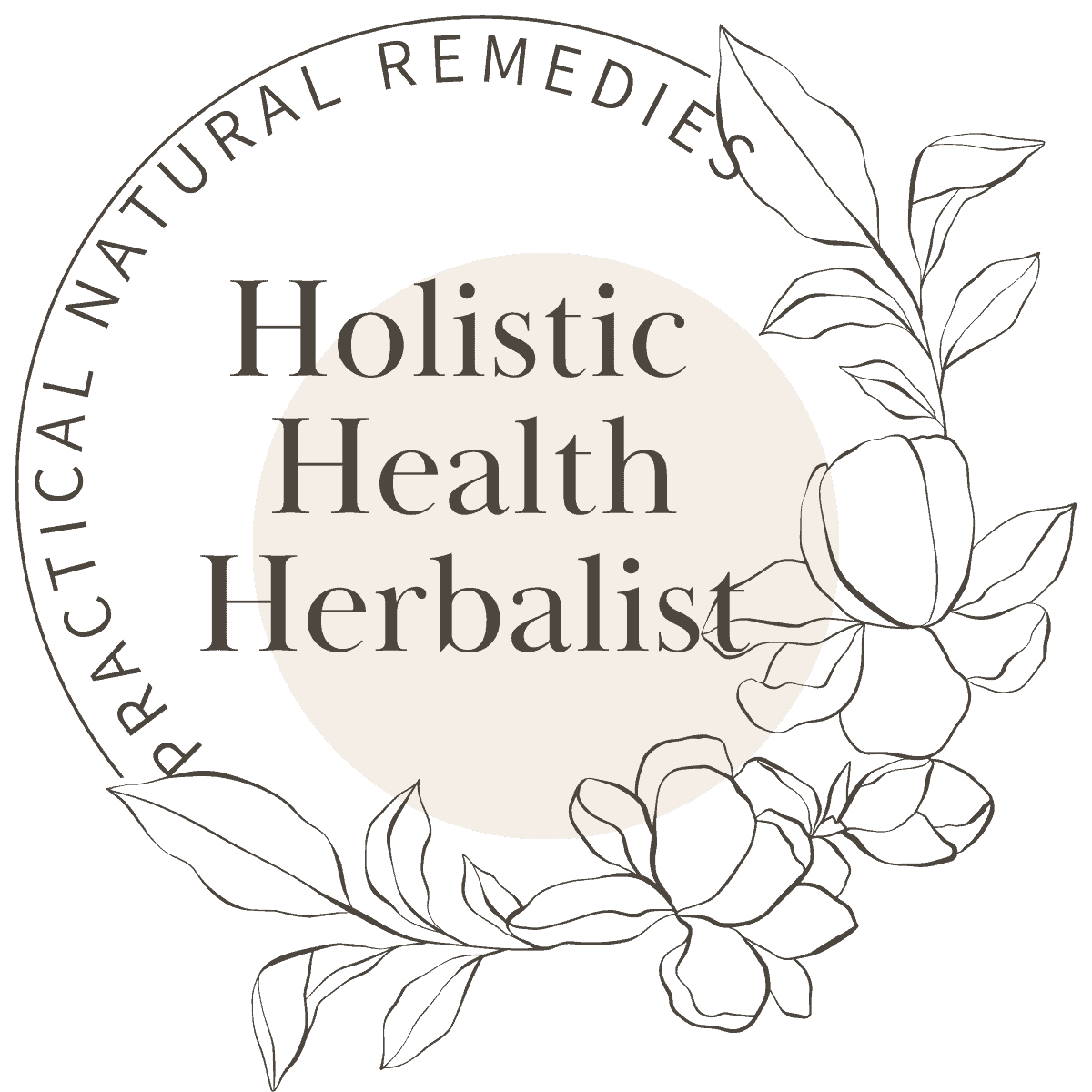

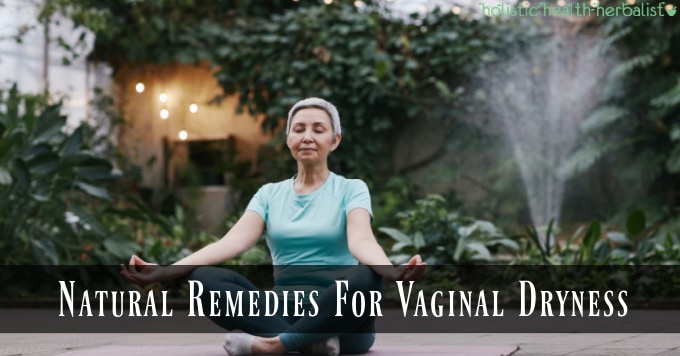
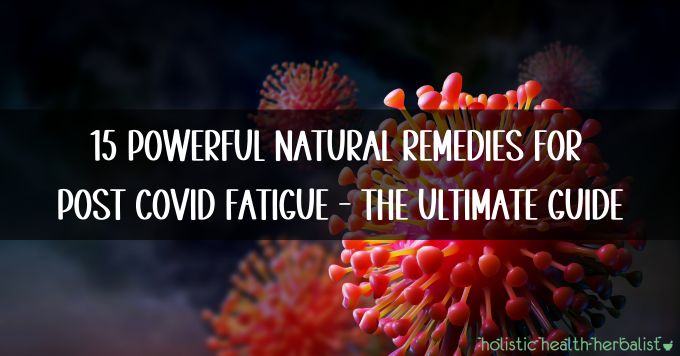
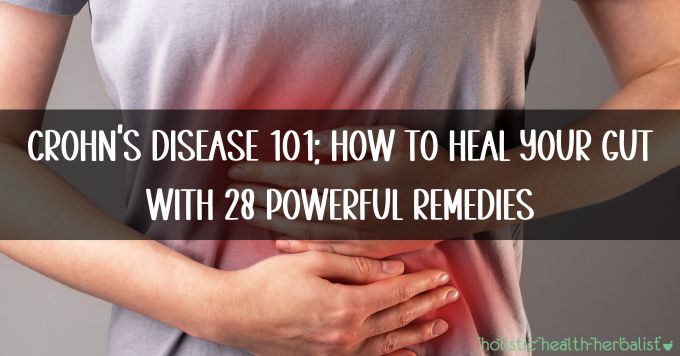
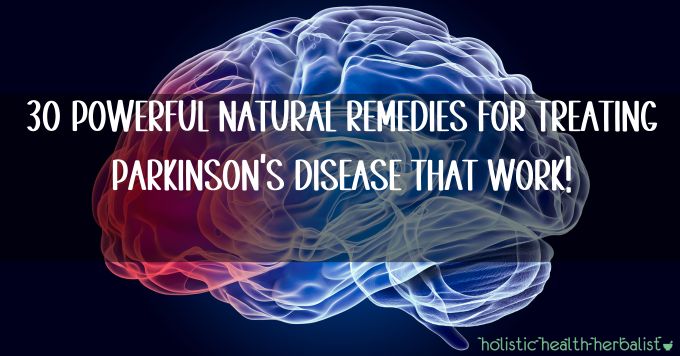
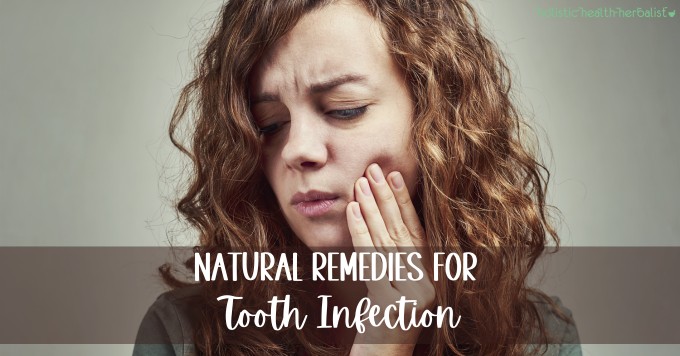
Leave a Reply